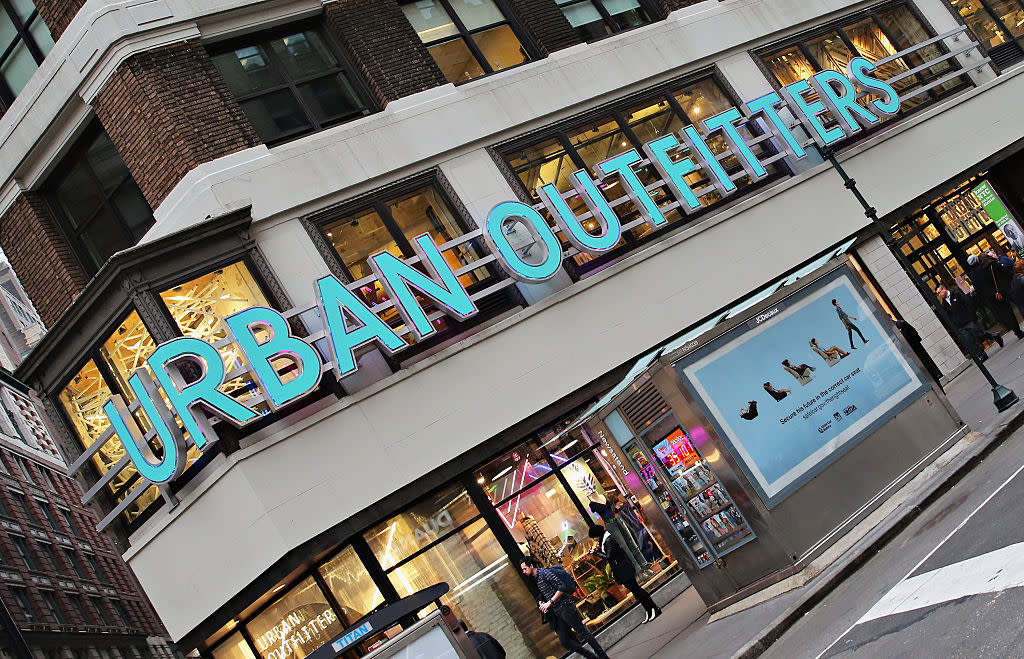Urban Outfitters Settles Longstanding Lawsuit with the Navajo Nation

Retail clothing chain Urban Outfitters has developed a reputation over the years for ripping off other cultures in the name of fashion. One culture, though, wisely decided to push back against the unauthorized appropriation. The Navajo Nation filed a trademark infringement lawsuit against Urban Outfitters back in 2012, and more than four years later, both sides have finally come to a legal agreement, according to The Guardian.
The conflict started when Urban Outfitters decided to market a line of Navajo-branded clothes and accessories without getting permission from the Native American tribe, which holds “10 registered trademarks on the Navajo name, covering clothing, footwear, online retail sales, household products and textiles,” says The Guardian, and that the Navajo name has been trademarked by the tribe since 1943. Because the Urban Outfitters wares are branded with the name “Navajo,” they are violating the Federal Indian Arts and Crafts Act, which legally prohibits selling “any art or craft product in a manner that falsely suggests it is Indian produced, an Indian product, or the product of a particular Indian or Indian Tribe or Indian arts and crafts organization,” the publication states.
And that’s exactly what Urban Outfitters has been doing since way back in 2001. Some of the insensitively named items up for sale by the company include the “Navajo hipster panty,” the “Peace Treaty feather necklace and the “Navajo print flask,” which added insult to injury, since alcohol consumption is illegal on the Navajo reservation. In fact, tribal officials called the flask “derogatory and scandalous” in a addition to a violation of the group’s trademark.
It may have taken a decade, but in 2011, a Native American named Sasha Houston Brown wrote an open letter to Urban Outfitters’ CEO to protest the goods, which bore not only the Navajo name but the prints, feathers, fringe, and other design elements used by tribal crafters. In her note, Brown snubbed the items as frivolous, calling them “plastic dreamcatchers wrapped in pleather” and an “indistinguishable mass of artificial feather jewelry and hyper sexualized clothing featuring an abundance of suede, fringe and inauthentic tribal patterns.” She claimed use of the tribe’s name and identity was “distasteful and demeaning.”
The Navajo Nation followed up in 2012 by officially filing a lawsuit in a district court in New Mexico to protect their designs, which they feel are among their “most valuable assets,” according to The Guardian. At the time, Urban Outfitters spokesperson Ed Looram implied that the company was willing to put up a fight, saying “Like many other fashion brands, we interpret trends and will continue to do so for years to come,” he said. “The Native American-inspired trend and specifically the term ‘Navajo’ have been cycling thru fashion, fine art and design for the last few years.” Urban Outfitters even tried to claim that the tribe should have known the retailer was using its name to sell merchandise, but their motion was dismissed in April.
It hasn’t been smooth sailing for the Navajo Nation either. In May, according to Mic, the tribe endured a setback when courts ruled “the word ‘Navajo’ just couldn’t be proven ‘famous enough'” — and widespread recognition by the general public is apparently one of the ways trademark infringement can be proven. Now, though, the two sides have finally called a truce that should be mutually beneficial to both parties. The Guardian says that the Navajo Nation and Urban Outfitters have not only settled the suit for an undisclosed amount, but will also be collaborating on a line of Native American jewelry per a “supply and license agreement” they co-signed.
Both sides seem very pleased with this best-possible-scenario outcome. Navajo Nation president Russell Bagaye said in a press release, “We applaud [Urban Outfitters] for acknowledging the validity of the Navajo Nation trademark and are glad we have settled this matter,” according to The Guardian. In turn, Urban Outfitters general counsel Azeez Hayne issued a statement that read, “We are pleased we’ve reached an agreement with the Navajo Nation. We take the rights of artists and designers seriously, both in protecting our own and in respecting the rights of others.” Hayne added that the company has long admired the aesthetic of the Navajo Nation and other Native American tribes.
That inspiration, however, seems to extend beyond just Native America for the clothing chain. Urban Outfitters has been an equal-opportunity appropriator over the years, stealing from a number of other cultures. In 2007, the retailer sold an “anti-war scarf,” which has heavily political implications in the Middle East and was modeled after the scarves worn by Palestinian nationalists, according to My City Paper. The site also points to Urban Outfitters’ sale of bindis — face gems worn traditionally by Indian women — in 2013, as well as a necklace that was being marketed as a rosary: a string of beads used by Catholics for prayer. And that’s just to name a few.
Perhaps the victory of the Navajo Nation will inspire other cultures to take protect their trademarked names and designs and to turn legal violations into peaceful collaborations.
Follow us on Facebook, Instagram, and Pinterest for nonstop inspiration delivered fresh to your feed, every day.

